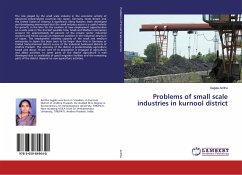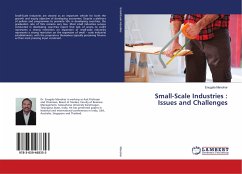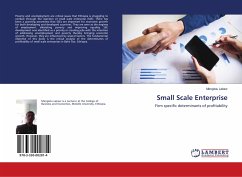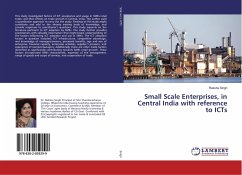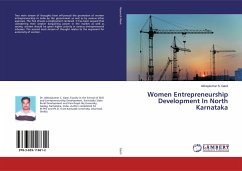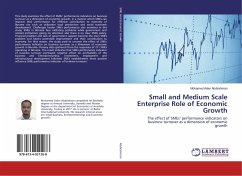This book provide an empirical research results of the impact of industrial policies on operational performance of Small Scale Industries in Nigeria (SSIs). The book clearly distinguishes Small Scale Industries from other small businesses commonly referred to as Small and Medium Enterprises (SMEs). The importance of small scale industrialization to a developing country like Nigeria can not be over emphasized. The book highlighted the difficulties faced by small scale entrepreneurs in Nigeria using Kano State as an example. The choice of Kano State as a case study was informed by its preeminent position as the second largest commercial center in Nigeria and the West Africa After Lagos. The book also extensively discussed measures that need to be taken to reposition small businesses generally to perform their well known role of job creation and poverty alleviation in Nigeria. It is envisaged that the book will be of immense benefit to policy makers, entrepreneurs and researchers.
Bitte wählen Sie Ihr Anliegen aus.
Rechnungen
Retourenschein anfordern
Bestellstatus
Storno


